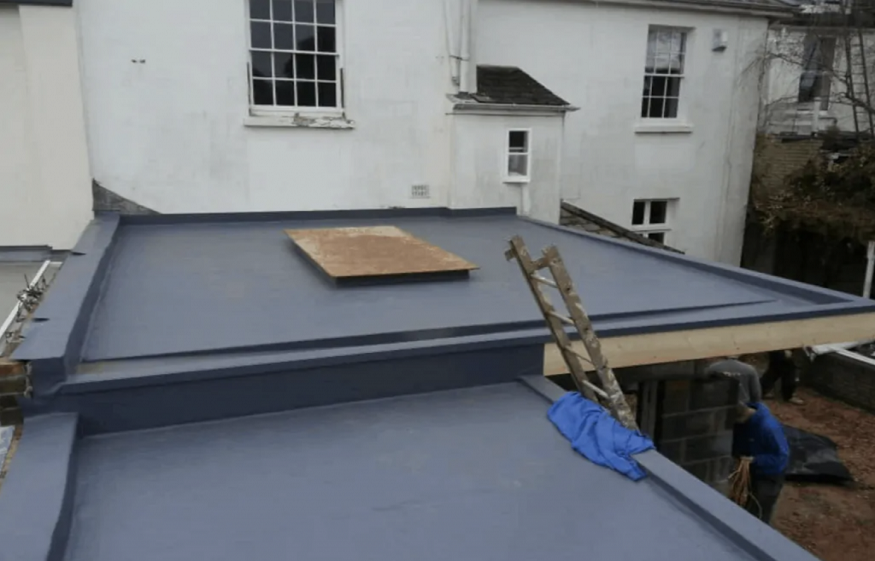 As 2025 unfolds, businesses in New Jersey are paying close attention to the latest trends in commercial flat roof installation NJ. With advancements in technology, shifts toward sustainability, and a growing need for cost-effective solutions, flat roofs have become more than just a practical choice—they are now a key element in modern building design. In this article, we explore the top trends shaping the commercial flat roofing industry in NJ this year.
As 2025 unfolds, businesses in New Jersey are paying close attention to the latest trends in commercial flat roof installation NJ. With advancements in technology, shifts toward sustainability, and a growing need for cost-effective solutions, flat roofs have become more than just a practical choice—they are now a key element in modern building design. In this article, we explore the top trends shaping the commercial flat roofing industry in NJ this year.
1. Emphasis on Sustainable Roofing Solutions
Environmental concerns are at the forefront of construction practices, and flat roofs are no exception. New Jersey businesses are increasingly opting for sustainable roofing options to reduce their environmental impact and align with state regulations. Key sustainable trends include:
- Cool Roof Coatings: Reflective materials are being used to reduce heat absorption, lowering energy costs and minimizing the urban heat island effect.
- Green Roofs: Flat roofs are being transformed into lush, living ecosystems that improve air quality, enhance insulation, and manage stormwater runoff.
- Recycled Materials: Many roofing materials now incorporate recycled content, reducing waste and promoting circular economy principles.
2. Integration of Solar Panels
As NJ businesses seek to reduce energy costs and embrace renewable energy, the integration of solar panels on flat roofs is becoming a common practice. The wide, unobstructed surface area of flat roofs makes them ideal for photovoltaic installations. Moreover, state incentives and federal tax credits are making solar panel installations more financially viable than ever.
Some of the latest developments in solar technology for flat roofs include:
- Bifacial Solar Panels: These panels capture sunlight on both sides, increasing energy generation.
- Flexible Solar Films: Lightweight and easy to install, these films are perfect for flat roofs with weight limitations.
- Solar Roof Membranes: Seamlessly integrating solar technology into the roofing material itself, these membranes provide dual functionality.
3. Advanced Roofing Materials
The evolution of roofing materials is revolutionizing flat roof installations. NJ businesses are prioritizing durability, energy efficiency, and ease of maintenance when selecting roofing solutions. Popular material trends include:
- TPO (Thermoplastic Polyolefin): Known for its energy efficiency, durability, and resistance to UV rays, TPO is a popular choice for commercial flat roofs.
- EPDM (Ethylene Propylene Diene Monomer): This rubber roofing material offers excellent weather resistance and longevity.
- PVC (Polyvinyl Chloride): With superior fire resistance and energy efficiency, PVC is gaining traction in commercial roofing.
- Self-Adhering Membranes: Eliminating the need for hot asphalt or adhesives, these membranes simplify installation while reducing environmental hazards.
4. Smart Roofing Technology
The rise of smart technology is extending to the roofing industry, offering NJ businesses enhanced monitoring and maintenance capabilities. Smart roofing systems use sensors and IoT (Internet of Things) technology to detect issues before they become costly problems. Key innovations include:
- Leak Detection Systems: Embedded sensors can alert building owners to water infiltration, preventing extensive damage.
- Energy Monitoring: Smart roofs can track energy efficiency and suggest optimizations.
- Weather Adaptation: Some systems can adjust to weather conditions, such as automatically increasing insulation during colder months.
5. Focus on Resilience and Weatherproofing
New Jersey’s unpredictable weather, ranging from heavy snow to intense summer storms, underscores the importance of resilient roofing solutions. Businesses are investing in materials and designs that can withstand extreme weather events while maintaining structural integrity. Popular weatherproofing trends include:
- Impact-Resistant Materials: Designed to withstand hail, debris, and other potential hazards.
- Enhanced Drainage Systems: Proper drainage is critical for flat roofs to prevent water pooling and leaks.
- Wind Uplift Resistance: Roofing systems are being engineered to handle high winds common in coastal areas of NJ.
6. Modular Roofing Systems
Speed and efficiency are becoming priorities for NJ businesses, and modular roofing systems are gaining traction as a result. These systems involve pre-fabricated components that are assembled on-site, reducing installation time and labor costs. Additionally, modular systems offer flexibility for future expansions or modifications.
7. Comprehensive Maintenance Plans
Proactive maintenance is a growing trend, as businesses recognize the value of extending their roof’s lifespan. Roofing contractors in NJ are offering comprehensive maintenance packages that include:
- Regular inspections to identify and address potential issues.
- Cleaning services to remove debris and ensure proper drainage.
- Scheduled updates and repairs to maintain optimal performance.
8. Adoption of Building Information Modeling (BIM)
BIM technology is transforming the way commercial flat roofs are designed and installed. By creating detailed digital models, contractors and architects can:
- Optimize roof designs for energy efficiency and structural performance.
- Predict potential issues during the planning phase.
- Improve collaboration among stakeholders.
Conclusion
The commercial flat roofing industry in New Jersey is experiencing significant advancements in 2025. From sustainable materials and solar integration to smart technologies and resilient designs, these trends are shaping the future of flat roof installation . By staying ahead of these developments, NJ businesses can not only enhance the functionality and longevity of their roofs but also contribute to a greener, more innovative built environment.
For businesses considering a flat roof installation or upgrade, partnering with flat roof installation NJ who understand these trends is essential. Investing in cutting-edge solutions today will ensure that your commercial property remains efficient, durable, and compliant for years to come.






Leave a Reply
You must be logged in to post a comment.